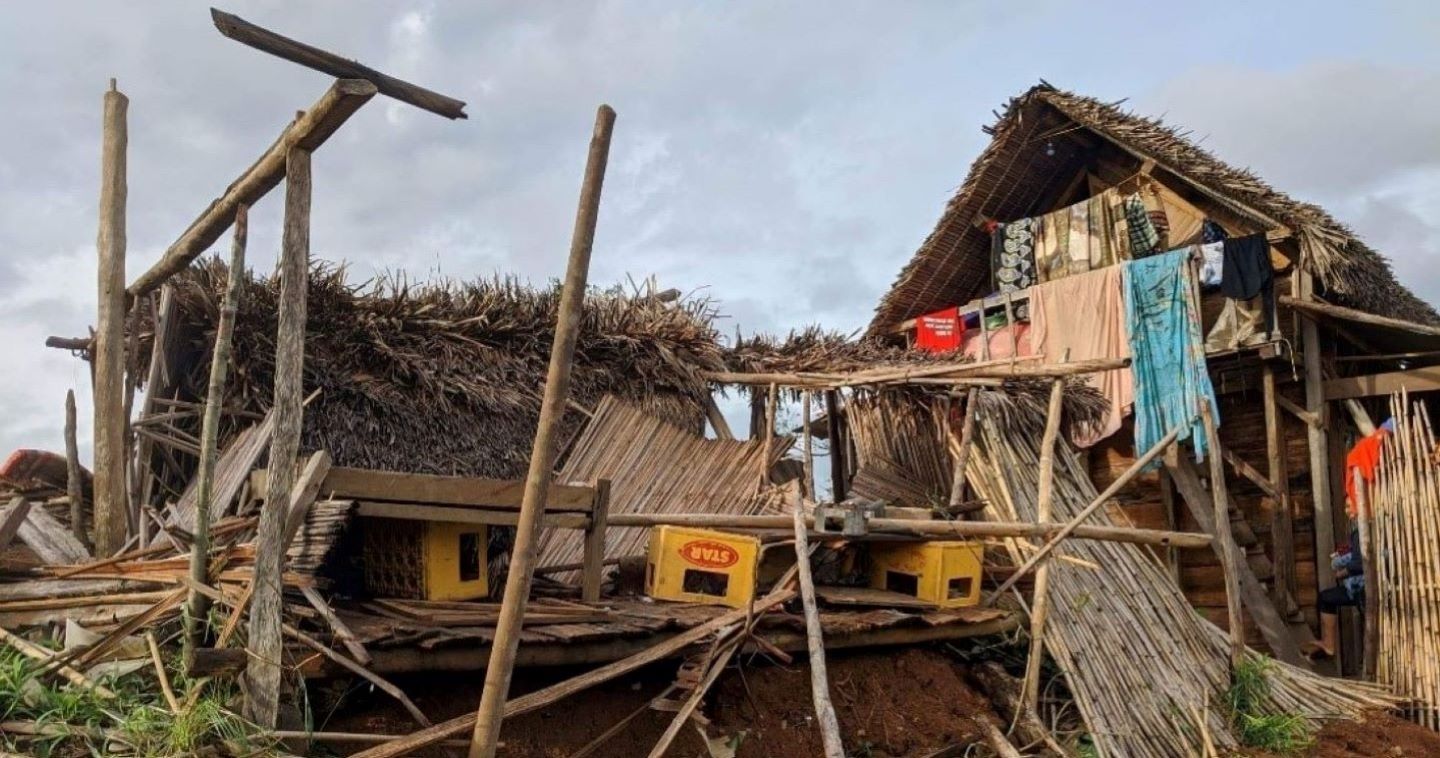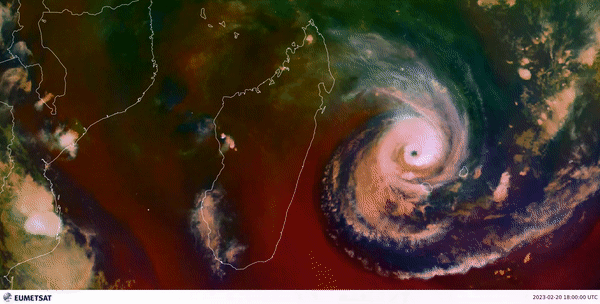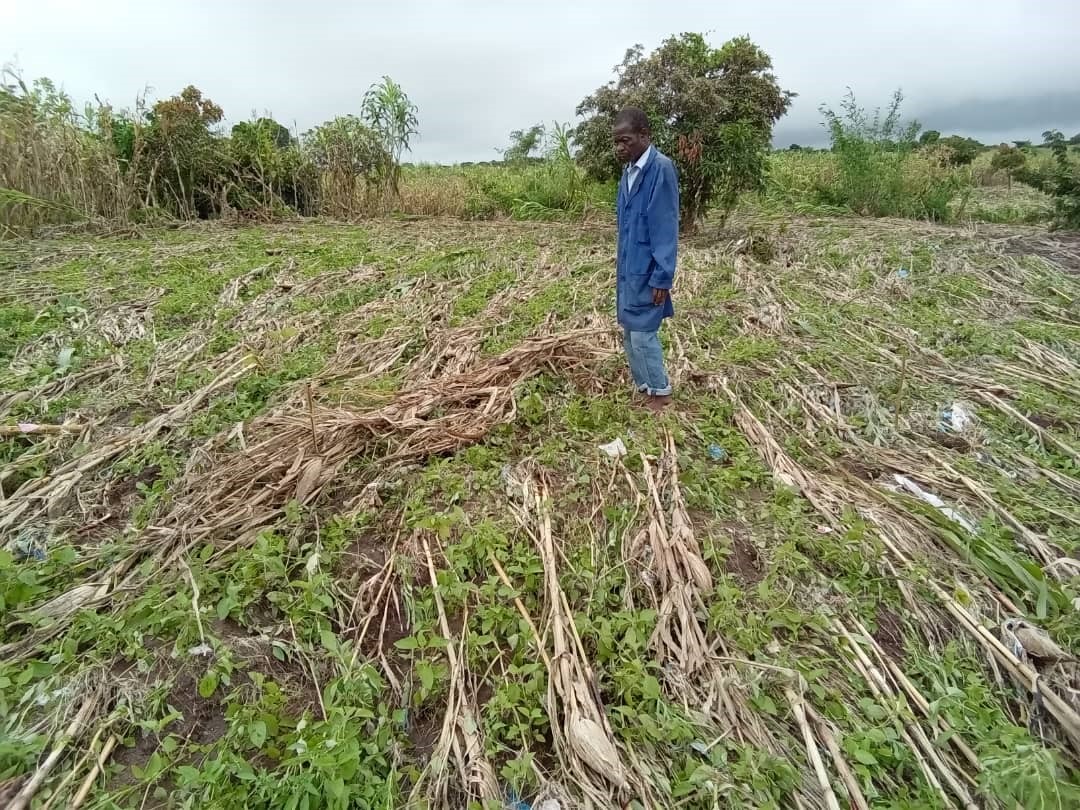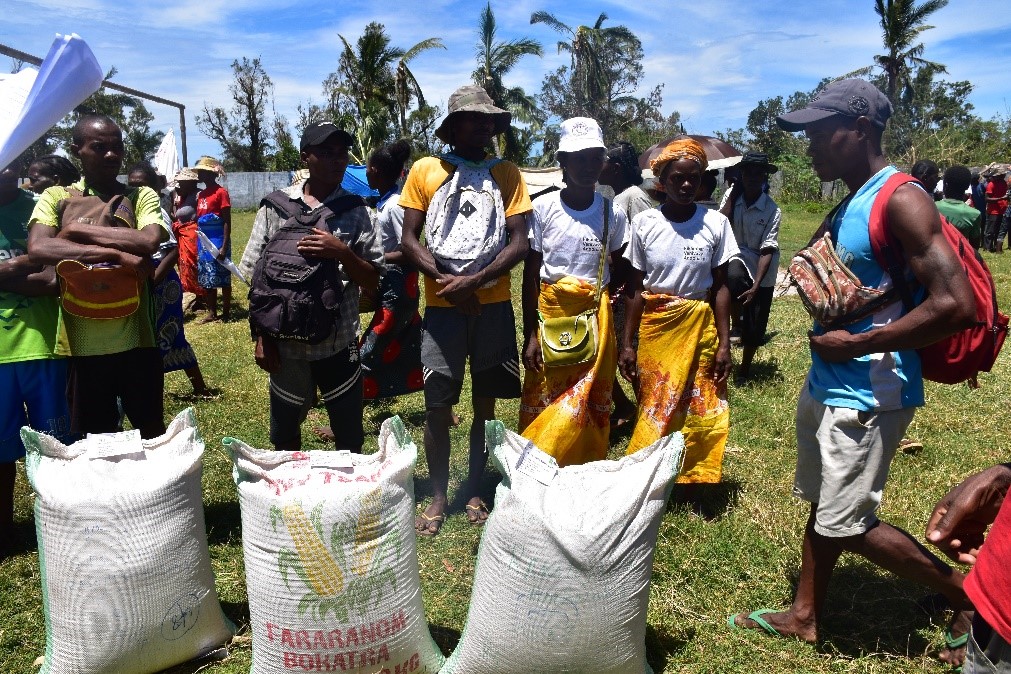As Cyclone Freddy breaks records, vulnerable rural people are in the eye of the storm
IFAD Asset Request Portlet
Asset Publisher
As Cyclone Freddy breaks records, vulnerable rural people are in the eye of the storm
Estimated reading time: 3 minutes
For over a month (and counting), Cyclone Freddy has been battering south-east Africa. This may be the longest-lasting tropical cyclone ever recorded—and vulnerable rural communities are in the eye of the storm.
After travelling over 8,000 km from northern Australia, Cyclone Freddy first hit Mauritius on 20 February 2023 before moving on to the coast of Madagascar. With as much energy as a full North Atlantic hurricane season, it dropped three times the monthly rainfall in less than a week.
Cyclone Freddy then slammed into Mozambique on 24 February, bringing flooding and devastation, before moving back out to sea, where it picked up more energy from the warm waters. On 11 March it made landfall again, bringing floods and high winds to Mozambique and Malawi. Already, scores of lives have been lost.
“It is with concern and sadness that we observe the floods, havoc and devastation left behind by Cyclone Freddy,” says IFAD’s East and Southern Africa Regional Director, Sara Mbago-Bhunu.
The climate change storm
Sadly, this may not be the last time a storm as powerful and long-lived as Cyclone Freddy threatens devastation, as its intensity and longevity is thought to be closely linked to climate change.
Tropical cyclones form when the ocean surface reaches 26.5°C. The warmer the sea surface, the stronger the cyclone. In recent years, sea surface temperatures in the South Indian Ocean—towards the South Pole—have reached 30–32°C, meaning the region where tropical cyclones form is no longer confined to the tropics.
Scientists say that climate change due to human activity has altered the likelihood and intensity of heavy rainfall associated with cyclones in East and Southern Africa.

What this means for IFAD’s project participants
Right now, we’re waiting for detailed assessments on how IFAD’s project participants in Madagascar, Mozambique and Malawi have weathered the storm. With communication networks down, preliminary information is slowly trickling through.
“IFAD country teams in the affected countries are currently assessing the impact in IFAD-supported project areas and discussing with Governments to see how best to provide support through our ongoing country portfolios,” says Mbago-Bhunu.
A state of disaster has been declared in Malawi with colleagues on the ground reporting that destructive winds, heavy rains, landslides and flooding have demolished houses and swept away agricultural fields and livestock. IFAD expects that food insecurity will worsen, eroding the resilience built by our projects.

In Mozambique, small-scale farmers were harvesting their maize, and preparing for May’s rice harvest, when Cyclone Freddy hit. According to the National Institute for Disaster Management, over 66,000 hectares of agricultural land have been affected. A year’s worth of rain fell in Mozambique over the past month, leading to fears that rivers might burst their banks.
In Madagascar, there are reports of damaged roads and irrigation infrastructure. Almost 2,000 households participating in the IFAD-supported DEFIS project in the coastal Vatovavy region were impacted when the cyclone first made landfall in late February. In some places, over 60 per cent of the young rice crop was destroyed by flooding. DEFIS has distributed 15 tons of fresh seed to help replant.
Even breadfruit trees, which have historically provided food in lean times, are reported to have been damaged in the worst-affected areas, creating food security concerns.

Cyclone Freddy is extreme. But it may not be unique.
Over the coming days and weeks, IFAD partners will examine the damage and chart ways forward.
In the meantime, Cyclone Freddy offers more overwhelming evidence of the need for climate change action. While cyclones are common in the region, this storm is unprecedented, yet it will probably not be unique as the impacts of climate change deepen.
“Going forward, building resilience and embracing innovative disaster risk reduction financing instruments are critical,” says Mbago-Bhunu.
Poor rural people worldwide need stronger and more diversified livelihoods to cushion them against devastating shocks like this. They need financial instruments designed for them, like crop insurance accessible to small-scale producers. They need climate-resilient infrastructure and restored ecosystems that can protect against increasingly common extreme weather impacts. And they need all of us to pitch in and act now to meet our global commitment to limit climate change and its effects.
Publication date: 16 March 2023